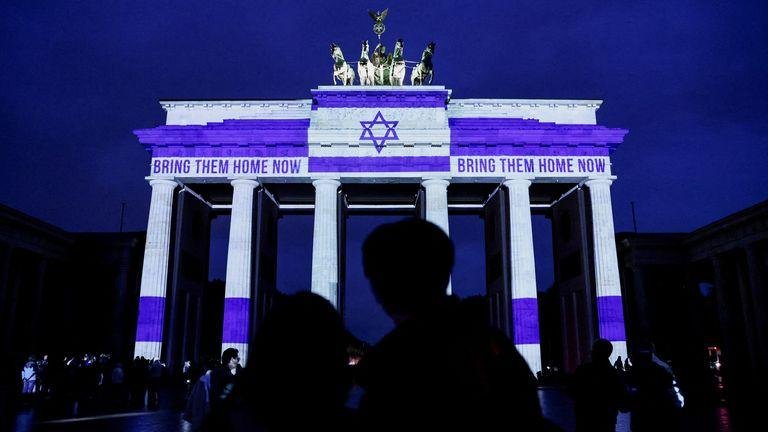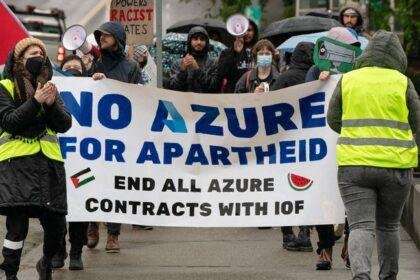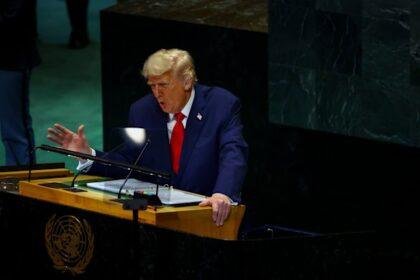Trump Optimistic About Ceasefire Talks as Israel Commemorates October 7 Attacks
In a significant development amid ongoing tensions in the Middle East, former President Donald Trump has expressed cautious optimism regarding ceasefire negotiations between Israel and Hamas. This comes as Israel marks the second anniversary of the devastating October 7 attacks, which resulted in the loss of approximately 1,200 lives, predominantly civilians. The somber anniversary has prompted memorial events across the globe, highlighting the enduring impact of the conflict.
Ceasefire Negotiations Underway
Trump characterized the current negotiations as “very serious,” suggesting that there is a potential pathway to peace in the region. His remarks come as key mediators, including Qatar’s Prime Minister and senior American diplomats, travel to Egypt to facilitate indirect talks between the Palestinian militant group Hamas and Israeli representatives. These discussions are crucial, especially as families of the remaining hostages hope for a resolution that could lead to their release.
The ongoing conflict has seen a staggering humanitarian toll, with reports indicating that over 67,000 Palestinians have died since the onset of hostilities. The situation has drawn international scrutiny, with various human rights organizations accusing Israel of committing acts that could be classified as genocide, a claim that the Israeli government vehemently denies.
Global Memorials and Grief
On October 7, memorials were held in various locations, including Tel Aviv, where mourners gathered to remember the victims of the attacks. Many visited the site of the Nova music festival, where nearly 400 Israelis lost their lives. Portraits of the deceased and those still held hostage were displayed, serving as poignant reminders of the human cost of the conflict.
In Berlin, the Brandenburg Gate was illuminated with messages calling for the release of hostages, while activists in Rio de Janeiro set up installations on Copacabana Beach to raise awareness about the plight of those still in captivity. These global memorials reflect a collective grief that transcends borders, uniting people in their sorrow and hope for peace.
The Historical Context of the Conflict
The October 7 attacks marked a turning point in the Israeli-Palestinian conflict, reminiscent of previous escalations that have shaped the region’s history. The surprise assault by Hamas militants, which included a barrage of rockets and ground incursions, was unprecedented in its scale and brutality. The subsequent Israeli military response has led to widespread devastation in Gaza, with entire neighborhoods reduced to rubble and a humanitarian crisis unfolding.
Historically, the Israeli-Palestinian conflict has been characterized by cycles of violence, punctuated by intermittent attempts at peace. The Oslo Accords in the 1990s offered a glimmer of hope for a two-state solution, but subsequent events have often derailed progress. The current situation underscores the complexities of achieving lasting peace, as both sides grapple with deep-seated grievances and existential fears.
Hamas’s Position and International Involvement
As negotiations continue, Hamas has indicated a willingness to engage in serious discussions but has also emphasized the need for guarantees to prevent future conflicts. Khalil Al-Hayya, a senior Hamas leader, stated that the group is prepared to reach a deal but requires assurances that the cycle of violence will not be repeated. This highlights the challenges of establishing trust between the parties involved.
U.S. officials have suggested that initial talks should focus on halting hostilities and facilitating the release of hostages. The involvement of international mediators, particularly from Qatar and the United States, reflects a broader recognition of the need for external support in navigating the complexities of the negotiations.
Domestic Reactions in Israel
The failure to secure the return of hostages has led to significant domestic unrest in Israel, with mass protests against Prime Minister Benjamin Netanyahu’s government. Critics argue that the government’s handling of the situation has left Israel more isolated on the international stage than it has been in decades. The protests reflect a growing discontent among the Israeli populace, who are grappling with the ramifications of the ongoing conflict.
Conclusion
As the world watches the unfolding situation in the Middle East, the hope for a ceasefire and a return to peace remains fragile. The anniversary of the October 7 attacks serves as a stark reminder of the human cost of conflict and the urgent need for dialogue. While Trump’s optimism may offer a glimmer of hope, the path to lasting peace will require sustained efforts from all parties involved, as well as a commitment to addressing the underlying issues that have fueled decades of violence. The international community’s role in facilitating these discussions will be crucial in shaping the future of the region.









